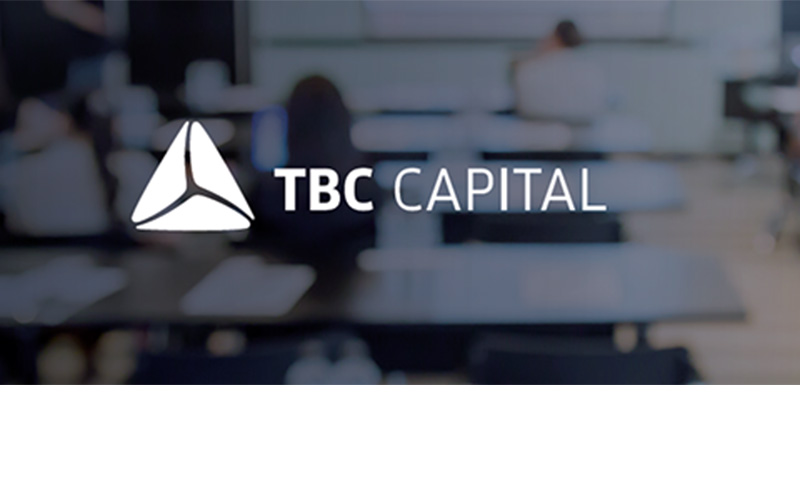Demand for private school on the rise as Georgia’s general education sector continues to grow

General Education in Georgia
Georgia’s general education sector has continued to steadily increase in value in recent years and is expected to reach a record value of 1.5 billion GEL in 2023, says TBC Capital’s latest sectoral report. The market, which includes grades 1-12 and represents primary, basic, and secondary education, continues to be dominated by state expendi-tures and will equal 1.3 billion GEL this year, a 14% increase from last year.
But while public education remains the dominant form of general education, accounting for around 90% of all students in the country, demand for private education is on the rise, says TBC Capital Senior Research Analyst Ia Katsia. “With the exception of the first year of the pandemic, which was marked by a decline in incomes and a rapid devaluation of the lari that made tuition fees denominated in dollars and euros more expensive, the number of students enrolled in private school has been steadily increasing in recent years,” she says.
“If you look at the overall number of first graders enrolling in Georgian schools, for instance,” Katsia continues, “this number has been steadily decreasing as Georgia suffers from a declining birth rate. Despite this, we see the enroll-ment numbers for first graders in private school continuing to rise – up 18% for this school year – which indicates that there is a growing preference for private education.”

Private Education Market
Despite steady demand, the supply of private schools is on the decline, numbering only 216 for the 2022/2023 academic year compared to 228 in 2018. This, says TBC Capital’s Katsia, is in part due to increasing competition and high operating costs. “We see growing competition between private schools as well as growing fixed costs, which is pushing some small and medium sized schools out of the market or forcing them to merge with larger schools,” she says. “Those private schools in particular are also having trouble attracting skilled teachers as they compete with public schools, which offer competitive pay raises for teachers that can pass certification exams.” This has, in turn, led to larger average class sizes at many private schools as well as some schools instituting waitlists for prospective students.

Tuition fees at private schools are also on the rise, up 10% YoY at an average of 6,500 GEL for the 2022/2023 academic year. They are also expected to jump another 5% to 10% next year as average incomes continue to rise in the country and demand remains strong. Financial statements from private schools show that their total revenue grew substan-tially from 2018-2021 on the back of increased tuition fees, hitting a value of 176 million GEL at the end of 2021.
Since 2018, the average EBITDA for private schools has hovered consistently around 22%, jumping to 25% briefly in 2020 as pandemic-induced online learning schemes temporarily reduced operating costs. The value of total loans for private schools has continued to increase, amounting to 106 million GEL in 2021 – a sign that expectations within the sector are positive, says Katsia. “This increased loan utilization, particularly in conjunction with a high current ratio and profitability indicators, tells us that management and business owners are confident in the market and are continuing to re-invest and expand their operations.”
Market Drivers
As the single largest contributor to the sector, the Ministry of Education and Science represents the most significant market driver – dedicating over half of its annual budget to general education. In 2023, this funding amounted to 1.34 billion GEL, a 14% increase compared to the previous year. And while the ministry has pledged to continue increasing its general education expenditures in the coming years, TBC Capital’s Katsia says the impact of increased expendi-tures on the quality of education offered will play an important role in defining the dynamics of the private and public education market.
“We’ve seen the Ministry of Education continue to increase its general education expenditures in recent years,” she says. “But we’ve not seen a corresponding boost in international test results indicating that these expenditures have had a significant impact.” Georgia’s 2018 PISA results, conducted by the OECD, for example, show the country ranked 64th in reading, 67th in mathematics, and 56th in science among 79 participating countries – remaining far below the OECD average. “Private schools consistently outperform public schools in every one of these metrics,” says Katsia, adding that a lack of improvement in the quality of the public education system will be a driver of increased demand for private schools in the future.
Rising income levels will also play a role in driving demand for private schools, says TBC Capital’s senior analyst. “The average share of income households devote to education expenses is coming down,” says Katsia, though she cautions that the current 37% level is considerably higher than, for instance, in the EU. “Private school tuition is still quite expensive for the average household to afford, but as we see incomes continue to rise, we also expect it to become more affordable compared to previous years.”


